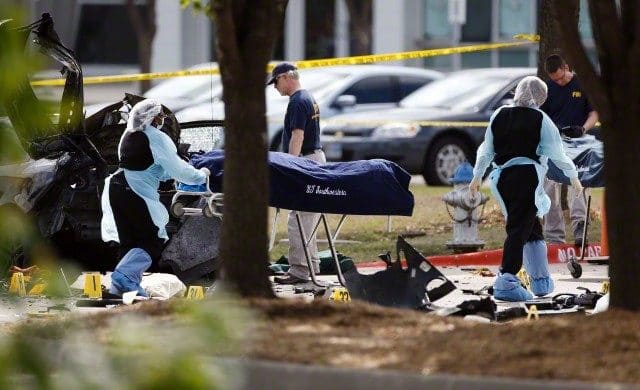I lived in Garland, Texas from 1990 to 1999. Therefore, the armed attack on the Muhammad Art Exhibit and Cartoon Contest was particularly newsworthy in my world.
Tell me who was strong, tell me who failed
It is my observation that when people look at a controversial event, they weave a story about this event. And part of the story weaving is designating certain characters in the story as either heroes, villains or victims. I consider this activity to be part of the problem. If I consider someone to be a hero in one event, I will be tempted to filter out evidence that makes them a villain or a victim in some other event. Another way of saying this is that designating someone as a hero, a villain or a victim is a hindrance to my objectivity.
Tell me who was strong, tell me who failed. By “tell me who was strong,” I mean “tell me who was direct, tell me who was certain, tell me who was unflinching, tell me who was demonstrating noble character, tell me who knew something.” By “tell me who failed,” I mean “tell me who failed to bless the situation, tell me who failed to control their impulses, tell me who failed to contribute.”
Tell me who was strong, tell me who failed. Steps to Knowledge has two consecutive steps which guide my response to those who are strong and those who fail. Step 244 (of 365) is “I am honored when others are strong.” Step 245 is “When others fail, I am reminded of the need for Knowledge.” I consider Step 244 to be an antidote for envy, and Step 245 to be an antidote for discouragement.
Tell me who was strong, tell me who failed. Someone is reading this and asking “Very well, Douglas, now that you have described what you mean, tell me who was strong, tell me who failed.” Fair enough. I consider Pamela Gellar to have been strong. I consider the American Freedom Defense Initiative to have been strong. I consider the as-yet-unknown security officer who prevented the killing of many people to have been strong. I consider the hundreds of Muslims who lived in the area and did no harm to have been strong. I consider Elton Simpson and Nadir Soofi, the two armed attackers, to have failed.
Tell me who was strong, tell me who failed. I realize people may read this and disagree with me. Therefore I wish to elaborate. It seems to help me to determine whether someone is being strong or failing by asking “How would I feel if others were to follow the example of a particular person?” How would I feel if a particular person’s actions were amplified tenfold? Another tool I find valuable is asking “How would I feel if the situation was reversed?”
Tell me who was strong, tell me who failed. The New Message from God has a teaching directly related to this event. The revelation “Religious Violence” was received by Marshall Vian Summers in November of 2014. The following is from that revelation:
“Religion’s violence has been a plague upon humanity for centuries, exercised around the world, always present, periodically very extreme.
It is a problem because religion is being used by those forces, those groups and those nations seeking power and domination, using religion as a justification, as a cause, as a purpose.
But this cannot be, you see, for God initiated all the world’s religions because God knows that not everyone can follow one teaching or one teacher.
Therefore, to punish the unbeliever is a crime against God. To denounce those who cannot respond to your religion represents a confusion, an arrogance and a crime against God.”
Tell me who was strong, tell me who failed. I pray I will never do violence in the name of my religion. I pray that every person on earth will pray that they never do violence in the name of their religion.
Welcome to Mystery of Ascension! We are students and advocates of the the New Message from God. We are members of a worldwide community. We seek to assist the world in successfully navigating difficult times ahead. We seek to assist the world in successfully emerging into a greater community of intelligent life. You will also find some poetry. Find out more about us here. Contact us here.

